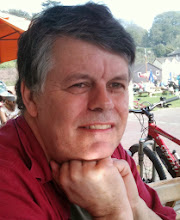I tour as sound engineer with pianocircus. We usually have to play on digital keyboards [currently the Yamaha CP33 stage piano] but occasionally they get to play on - and I get to mike up - 6 grand pianos. As such, I've become a Steinway spotter - collecting serial numbers of pianos we use.
In a series I rarely look at in the Guardian Review, John Mullan in "Ten of the Best" today looks at the use of pianos in literature.
Emma by Jane Austen
It bruises Emma that Jane Fairfax is so very good at playing the piano (if only she had practised a little more). Jane's prowess at the keyboard becomes central to the plot. Who could be the donor of the expensive instrument that is delivered to Miss Bates's house, where Jane is staying? It must surely be a male admirer. Well, yes, but Emma's deductions lead her very astray.
Vanity Fair by William Makepeace Thackeray
Amelia and Becky – the good girl and the bad girl – both play the piano, but look at their different styles! After her husband's death, Amelia "spends long evening hours, touching . . . melancholy harmonies on the keys, and weeping over them in silence". Becky, meanwhile, entrances the wife of the man she is seducing with the bogus "tenderness" of her renditions of Mozart.
Jane Eyre by Charlotte Brontë
Jane can play the piano, of course – but Blanche Ingram, her rival for the attentions of Mr Rochester, can really play. She sits proudly at the piano, "spreading out her snowy robes in queenly amplitude" and beginning "a brilliant prelude; talking meantime". But this is showing off, and dooms her.
Daniel Deronda by George Eliot
The scary German piano maestro Herr Klesmer (based on Franz Liszt) has "an imperious magic in his fingers that seemed to send a nerve-thrill through ivory key and wooden hammer". His romance with heiress Catherine Arrowpoint is conducted via the instrument, which he teaches her to play brilliantly.
The Portrait of a Lady by Henry James
Entering the huge drawing room at Gardencourt unseen, Isabel Archer finds an elegant woman at the piano. "She was playing something of Schubert's . . . and she touched the piano with a discretion of her own. It showed skill, it showed feeling". It is the mysterious Madame Merle, her gifts as a pianist a sign of her sexual powers.
The Awakening by Kate Chopin
The piano awakens Edna Pontellier's dormant passions. "The very passions themselves were aroused within her soul, swaying it, lashing it, as the waves daily beat upon her splendid body. She trembled, she was choking, and the tears blinded her." Adulterous love is only a step away.
Piano by DH Lawrence
A woman sings at the piano, and the poet is carried back to his childhood, when he sat "under the piano, in the boom of the tingling strings / And pressing the small, poised feet of a mother who smiles as she sings". The music reduces him to tears for the past.
The Piano Players by Anthony Burgess
An accomplished musician himself, Burgess fills this novel with piano music. Ellen Henshaw, an elderly former prostitute, looks back on her own efforts to learn the instrument. Her father, a brilliant player, improvised accompaniments to silent films at the cinema. The disastrous climax of his career is a 30-day non-stop piano marathon.
The Piano Teacher by Elfriede Jelinek
Erika is a middle-aged piano teacher at a Vienna conservatory. She still lives with her mother, who wanted Erika to be a concert pianist and forced her to practise. The piano inevitably becomes the focus of Erika's sadomasochistic affair with a teenage student, to whom she gives some very steamy lessons.
The Bradshaw Variations by Rachel Cusk
Thomas has become a househusband and, when his wife goes off to run some university department or other, he fulfils a long-held ambition: to become really good at the piano. Pausing from practice to do the odd school run, he escapes from the turmoil of mid-life dread into the harmonies of the keyboard. Except, of course, that it will prove to be no escape at all . . .
The REAL Financial Crisis
16 years ago

No comments:
Post a Comment